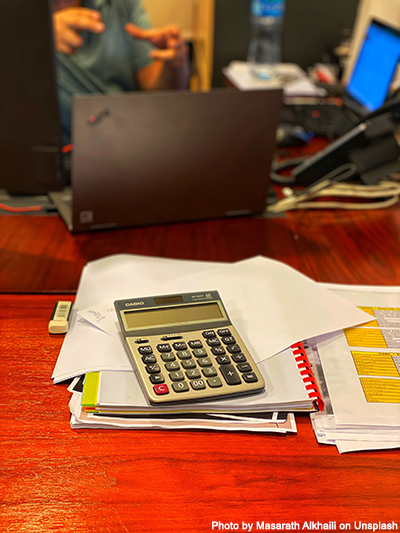
BIR Clarifies Tax Implications of Travel Restrictions on Cross-Border Matters
By: Atty. Rodel C. Unciano
"Under Revenue Memorandum Circular (RMC) 83-2020, where an individual is prevented from leaving the Philippines on his or her scheduled date of departure as a result of the travel restrictions imposed by the government, the individual will not be regarded as being present in the Philippines for tax residence purposes for the period after the scheduled day of departure. The situation will be considered as “force majeure” for the purpose of establishing the individual’s tax residence. This is on condition that the employee should leave the Philippines as soon as the circumstances would permit or when the travel restrictions have been lifted."
The implementation of travel restrictions as a safety measure to prevent the spread of the Covid-19 pandemic has raised concerns on the taxability of employment income of cross-border workers and the creation of Permanent Establishment (PE) of foreign enterprises in the Philippines.
Under the effective tax treaties of the Philippines with other countries, the residence State has an exclusive right to tax the employment income derived by its resident taxpayers, except when the employment is exercised in another Contracting State, in which case, the latter State may tax the employment income. However, even if employment is exercised in the Philippines, the employment income will not be subject to tax in the Philippines under the following conditions:  1. The employee has not been present in the Philippines for more than 183 days (120-days in the case of Philippines-Poland tax treaty; 90 days in the case of Philippines-US tax treaty) in a year or any twelve month period, depending on the applicable tax treaty;
1. The employee has not been present in the Philippines for more than 183 days (120-days in the case of Philippines-Poland tax treaty; 90 days in the case of Philippines-US tax treaty) in a year or any twelve month period, depending on the applicable tax treaty;
2. The remuneration is paid by an employer that is not a resident of the Philippines; and
3. The remuneration is not deductible against the profit of a PE in the Philippines which bears the remuneration.
What would be the tax implications if the employee’s presence in the Philippines would exceed the threshold number of days in a treaty as a result of travel restrictions that prevented him from leaving the Philippines on his scheduled date of departure?
Under Revenue Memorandum Circular (RMC) 83-2020, where an individual is prevented from leaving the Philippines on his or her scheduled date of departure as a result of the travel restrictions imposed by the government, the individual will not be regarded as being present in the Philippines for tax residence purposes for the period after the scheduled day of departure. The situation will be considered as “force majeure” for the purpose of establishing the individual’s tax residence. This is on condition that the employee should leave the Philippines as soon as the circumstances would permit or when the travel restrictions have been lifted.
Therefore, the tax residence status of a non-resident employee who is stranded in the Philippines for a certain number of days will not change even if his period of stay in the Philippines would exceed the threshold number of days under the applicable tax treaty. Thus, the foreign state on which the employee is a resident shall still exercise its exclusive right to tax the employment income of the employee except when the domestic company appears to be the real employer or when his remuneration is borne by a PE of the non-resident employer.
What if a non-resident employee has a pending contract with her employer in her country of residence for a seven-month audit for a local client in the Philippines but due to travel restrictions, the employee was unable to fly to the Philippines on his scheduled day of departure? Will his income to be paid by the non-resident employer subject to Philippine tax?
According to RMC 83-2020, the income of the non-resident employee will still be subject to tax in the Philippines. The BIR will consider circumstances that would have occurred absent such travel restrictions.
What if the non-resident employee was on holiday vacation in the Philippines but unable to go back to his country of residence due to travel restrictions imposed by the government on the day of his departure? Will his income to be paid by the non-resident employer during his extended stay in the Philippines subject to Philippine tax?
According to RMC 83-2020, the income that the employee receives from his foreign employer is not from a Philippine source as he has only been on leave when he arrived in the Philippines. Being so, he does not have to declare his income in the Philippines. This is provided that the employee should leave the Philippines as soon as the circumstances would permit him to do so.
As regards creation of PE, the effects of COVID-19 will not result in the creation of a PE if the following requirements are met: a) The non- residentforeign company did not have a permanent establishment in the Philippines before the effects of COVID-19; b) There are no other changes in the company's circumstances save for the extended stay of its employee, partner or agent in the Philippines because of travel restrictions; and c) The employee, partner or agent should leave the country as soon as the circumstances would permit.
residentforeign company did not have a permanent establishment in the Philippines before the effects of COVID-19; b) There are no other changes in the company's circumstances save for the extended stay of its employee, partner or agent in the Philippines because of travel restrictions; and c) The employee, partner or agent should leave the country as soon as the circumstances would permit.
In order to prove that the extended presence in the Philippines was due to COVID-related travel restrictions, the concerned individual or company shall submit to the satisfaction of the BIR relevant documents, such as authenticated sworn certification stating the relevant facts and circumstances of the bona fide presence of the employee in the Philippines, duly executed contract/s, confirmed booking or flight itinerary for the original flight, confirmed booking or flight itinerary for the re-booked flight, travel advisory on the cancellation of flight issued by the airline company, among others.
The author is a partner of Du-Baladad and Associates Law Offices (BDB Law), a member-firm of WTS Global.
The article is for general information only and is not intended, nor should be construed as a substitute for tax, legal or financial advice on any specific matter. Applicability of this article to any actual or particular tax or legal issue should be supported therefore by a professional study or advice. If you have any comments or questions concerning the article, you may e-mail the author at This email address is being protected from spambots. You need JavaScript enabled to view it. or call 8403-2001 local 140.



